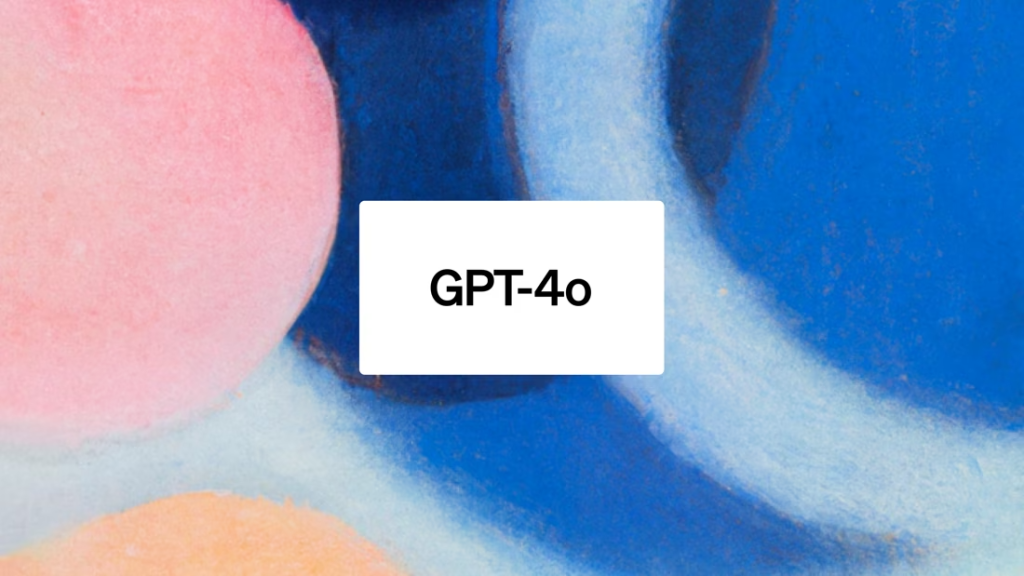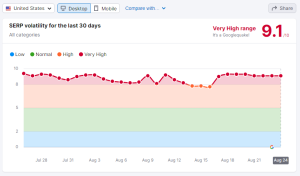Last week, two significant announcements set the stage for the future of AI and its impact on various sectors, including marketing. Google introduced updates to its search capabilities, leveraging its advanced Gemini model, while OpenAI unveiled GPT-4o, a new flagship model with multimodal capabilities. Let’s dive into these updates and explore what they mean for the future.
Google’s Latest Search Update
Google has rolled out AI Overviews to all users in the U.S., with plans for global expansion. These AI Overviews, tested extensively in Search Labs, provide quick answers by summarizing information from multiple sources. Users can now enjoy a more engaging search experience, with the ability to adjust the complexity of the language used in these overviews.
AI Overviews
AI Overviews are designed to provide users with a snapshot of information, making it easier to understand complex topics quickly. This feature has been in experimental stages in Search Labs, and its success has led to a broader rollout. Users can now benefit from AI Overviews, which not only give a quick summary but also include links to delve deeper into the subject. This dual approach helps users get a concise understanding and then explore further if needed.
Handling Complex Queries
One of the notable features is the AI’s ability to handle complex queries through multi-step reasoning. For instance, if you’re looking for the best yoga or pilates studios in Boston that offer discounts and are conveniently located, the AI Overview can provide all the relevant details in a single search. This means users no longer have to break down their queries into multiple searches; the AI can understand and process the entire request at once, offering a comprehensive answer.
Planning Capabilities
In addition to answering complex questions, AI Overviews now include planning capabilities. Users can create detailed plans for various tasks, such as meals or vacations, directly within the search interface. For example, if you search for “create a 3-day meal plan for a group that’s easy to prepare,” the AI Overview will generate a meal plan with recipes sourced from across the web. Users can customize these plans easily, swapping out recipes or adjusting for dietary preferences. These plans can then be exported to Google Docs or Gmail for easy access and sharing.
AI-Organized Search Results
Google is also enhancing how search results are organized. With AI-generated headlines categorizing search results, users can explore a wide range of perspectives and content types more efficiently. For example, if you’re searching for dining options, the results might be categorized under headlines like “Best Italian Restaurants” or “Family-Friendly Dining,” each featuring a variety of relevant links. This organization helps users find exactly what they’re looking for more quickly.
Video-Based Search Capabilities
Another upcoming feature is video-based search. This allows users to upload videos to get AI-generated troubleshooting steps. For instance, if you have a malfunctioning appliance, you can upload a video showing the problem, and the AI will provide steps to diagnose and fix the issue. This feature will save users the hassle of describing the issue in text, making the troubleshooting process faster and more accurate.
Publisher and Advertiser Benefits
Google’s updates also benefit publishers and advertisers. AI Overviews direct more traffic to publishers by including links in the summaries. This increased visibility can lead to higher engagement on their websites. For advertisers, ads will remain clearly labeled and distinct from organic results, ensuring transparency while maintaining the integrity of the user experience.
Control and Customization for Content Creators
Publishers can manage how their content appears in AI Overviews using existing search controls like robots.txt. This allows them to decide which parts of their content are visible in the overviews. Google provides tools for troubleshooting these controls, ensuring that publishers have the necessary resources to manage their content effectively.
User Privacy and Data Handling
Google uses user interactions and feedback to improve AI. Reviewers see anonymized data to protect user privacy, ensuring that personal information remains secure. This approach helps Google refine its AI capabilities while maintaining trust with its users.
Key Announcements from Google I/O 2024 and OpenAI
At Google I/O 2024, the focus was on the Gemini model. The Gemini model, built to be multimodal, processes and reasons across text, images, video, and code. This model is now integrated across various Google products, enhancing user experiences in Search, Photos, Workspace, and Android. Notably, the Ask Photos feature allows users to search their photo libraries using natural language queries. For example, you can ask about your daughter’s swimming milestones and receive a summarized timeline of her progress, complete with relevant photos and context.

OpenAI introduced GPT-4o, a model designed for real-time multimodal interaction. GPT-4o can process text, audio, image, and video inputs, delivering outputs in these formats. This model improves response times and performance, particularly in vision and audio understanding. GPT-4o is available in the API, providing developers with faster, more cost-effective access to advanced AI capabilities. The text and image capabilities of GPT-4o are now available in ChatGPT, with plans to introduce audio and video features soon.
Implications for the Future of AI and Marketing
These advancements in AI technology from Google and OpenAI will have a significant impact on marketing strategies and how businesses interact with their audiences. For marketers and those interested in internet marketing, understanding these changes is crucial to stay ahead in the competitive landscape.
AI advancements will fundamentally change how users interact with online content. With AI Overviews, users receive quick, summarized information, which means they can get what they need faster and more efficiently. This improved user experience leads to higher engagement and satisfaction, making it more likely that users will return to your site. As a marketer, it’s important to optimize your content for these AI-generated summaries. Focus on clear, concise, and relevant information that AI can easily extract and present to users.
The ability of AI to handle complex queries and provide detailed, customized responses opens new avenues for personalization. AI can now offer tailored recommendations based on a user’s specific needs and preferences, from product suggestions to personalized content. Marketers can leverage this by creating more personalized marketing campaigns. Use data analytics to understand your audience better and tailor your messaging to meet their specific needs. Personalized marketing not only enhances user experience but also increases conversion rates.
Streamlined Content Creation and Improved SEO Strategies
AI tools like GPT-4o can assist in content creation, making the process faster and more efficient. For example, GPT-4o’s capabilities in generating text, images, and even video content can help marketers produce high-quality content quickly. This means you can maintain a consistent content schedule and respond to market trends more rapidly. Additionally, AI can help with SEO by analyzing current trends and suggesting keywords that will improve your content’s visibility in search results.
With AI Overviews becoming a prominent feature in search results, SEO strategies will need to adapt. Traditional SEO practices will still be important, but now there’s a greater emphasis on creating content that AI can easily interpret and summarize. Ensure your website’s content is well-structured and uses clear headings and concise language. Rich media such as videos and infographics should be well-tagged and described, as AI will also be processing these formats. Additionally, keeping up with Google’s Search Essentials will help you stay compliant with their guidelines and improve your chances of appearing in AI Overviews.
Preparing for AI-Driven Future
To leverage these AI advancements, marketers need to stay informed and continuously adapt their strategies. Invest in AI tools and platforms that can help you automate and optimize your marketing efforts. Consider training your team on how to use these tools effectively and stay updated with the latest trends and best practices in AI-driven marketing.




